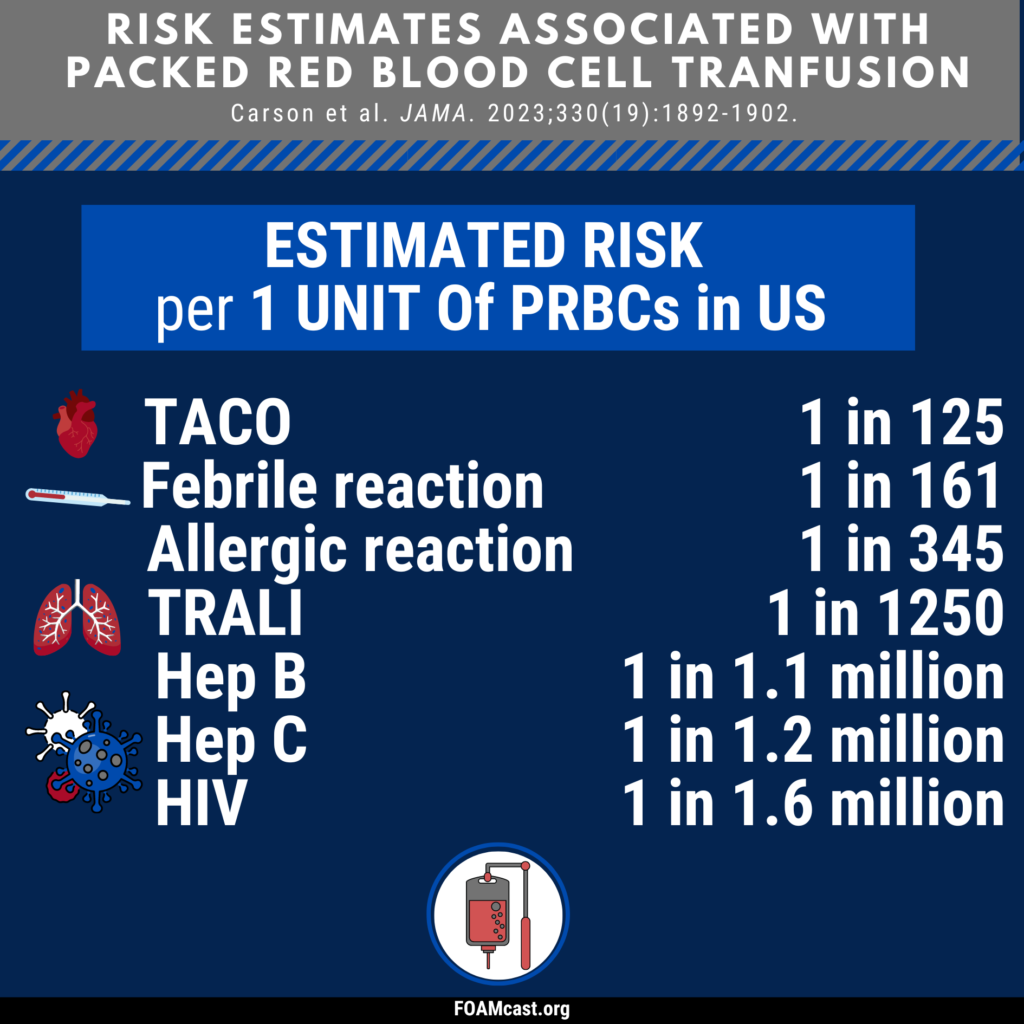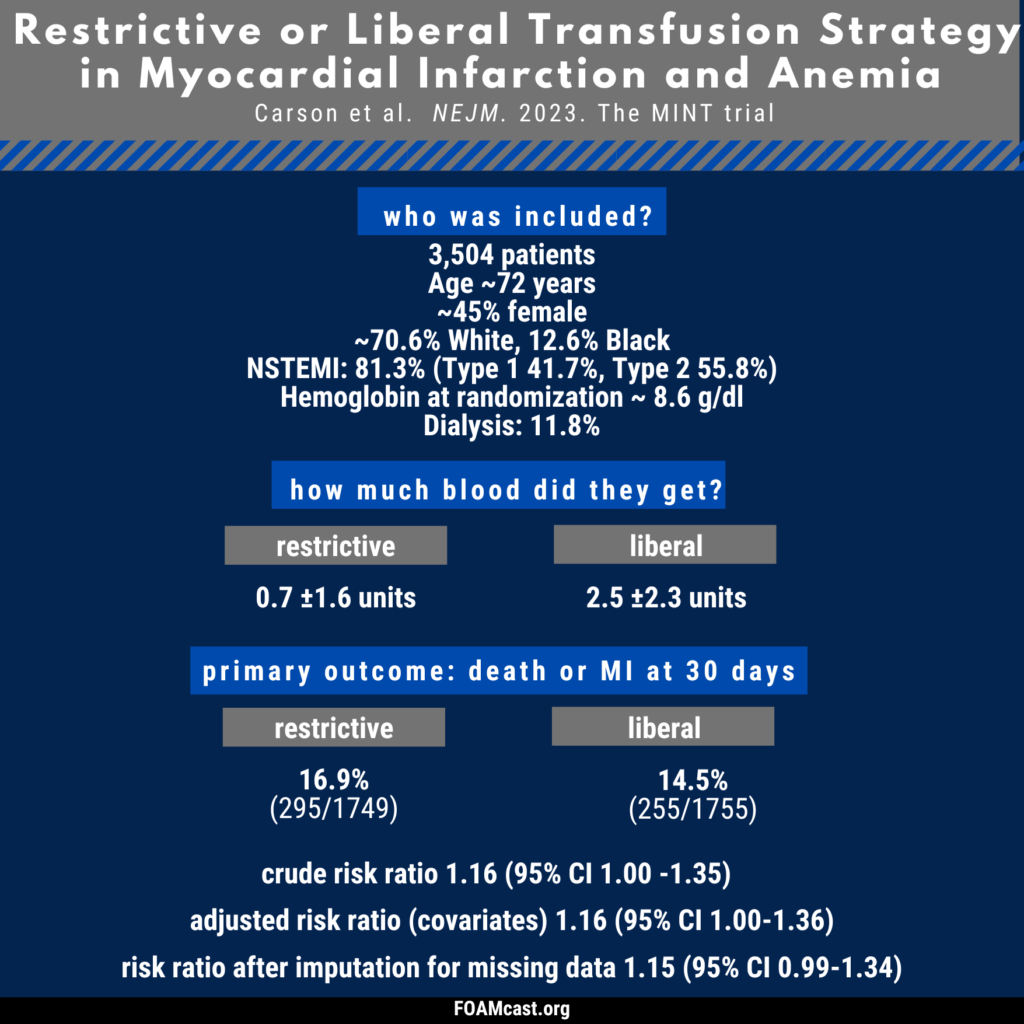Apple Podcasts, Spotify, Listen Here
The American Heart Association (AHA) released new clinical practice guidelines on atrial fibrillation (AF). This episode reviews the emergency medicine-related guidelines.







Apple Podcasts, Spotify, Listen Here
The American Heart Association (AHA) released new clinical practice guidelines on atrial fibrillation (AF). This episode reviews the emergency medicine-related guidelines.







Apple Podcasts, Spotify, Listen Here
The Association for the Advancement of Blood & Biotherapies (AABB) released 2023 International Red Blood Cell Transfusion Guidelines. This podcast reviews the guidelines as well as a recently released trial evaluating restrictive versus liberal transfusion strategy in patients with myocardial infarction. Carson et al. Restrictive or Liberal Transfusion Strategy in Myocardial Infarction and Anemia. NEJM 2023. DOI: 10.1056/NEJMoa2307983.





Apple Podcasts, Spotify, Listen Here
The American College of Emergency Physicians (ACEP) just released a clinical policy on the management of emergency department patients presenting with severe agitation. This podcast reviews the clinical policy. We previously covered parenteral agents and a small trial of ketamine in this podcast. The policy committee was unable to make any Level A recommendations due to limitations in included studies. The recommendations the clinical policy committee was able to make are based largely on class II studies. This field of research is limited by few direct, head-to-head comparisons of medications using similar doses via the same route, resulting in some indirect evidence and conclusions.



Disclosure: Lauren Westafer is a member of the ACEP Clinical Policy Committee but the views and opinions represented in this post/podcast are hers alone and do not represent those of the ACEP Clinical Policy Committee.